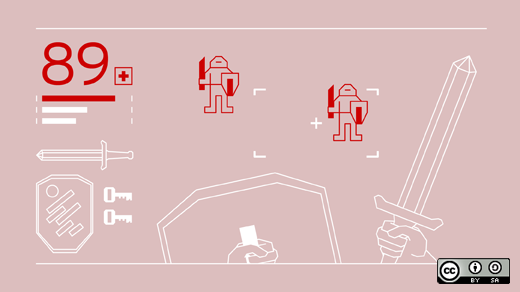For fans of both gaming and open source software, few major video game companies have been revered as id software, one of the only major game studios that has not only perpetually released game clients for Linux, but has also released the source code for many of their proprietary game engines. Admittedly, the source code is always released once the next generation of id's gaming engine was launched.
In other words, id does keep their software proprietary until it becomes outdated by id's standards. Even so, their opening of professional, big budget engines has allowed for many new, open source games to see the light of day. Games such as Xonotic, World of Padman, and OpenArena—all of which are based on id's open game engines—would be near impossible to recreate without id's continuous support of the community.
So it came as little surprise when id co-founder John Carmack announced at id's annual trade show, QuakeWorld , that the source for the acclaimed Doom 3 would be opened after the release of Rage--the newest game developed by id using their latest engine.
However, this release was a bit different. If you've read any of the other articles on this matter, you know that lawyers from id and ZeniMax (id's parent company) spotted portions of code that were licensed from Creative. Therefore there were concerns over the legality opening these licensed sections of the codebase.
While some may be against ZeniMax's lawyers due to their Scrolls situation, I can't say that they were too wrong in this instance. Licensed code has always been a concern with opening once closed software. The reasons are obvious. Court proceedings, lawsuits and payouts are bad for any business. Imagine if id released the Doom 3 source code and then Bethesda or id were sued. We'd likely never see any new open source code from id again.
Business is business, and even successful companies like id cannot eat lawsuits with every release. Many lawyers are quick to put a stop if there is even the threat of a risk of litigation. In other words, if id were sued once, the hope of ever opening the source of any new id project would be near impossible. Let me repeat, had the lawyers not spotted the licensed bits as they did, we could have lost not only the Doom 3 code, but also the code for each subsequent engine produced by id.
While I would love to see id and other large gaming companies opening software from the get-go, it is nice to be able to count on id to deliver their still relevant engines in a GPL'd format for all to consume. Thanks to diligent work by all parties involved, this tradition should have a bright future ahead. We'd love to hear your thoughts on the recent announcment. Feel free to post about your favorite games based on id's open engines as well as thoughts on the latest source release by id.







7 Comments